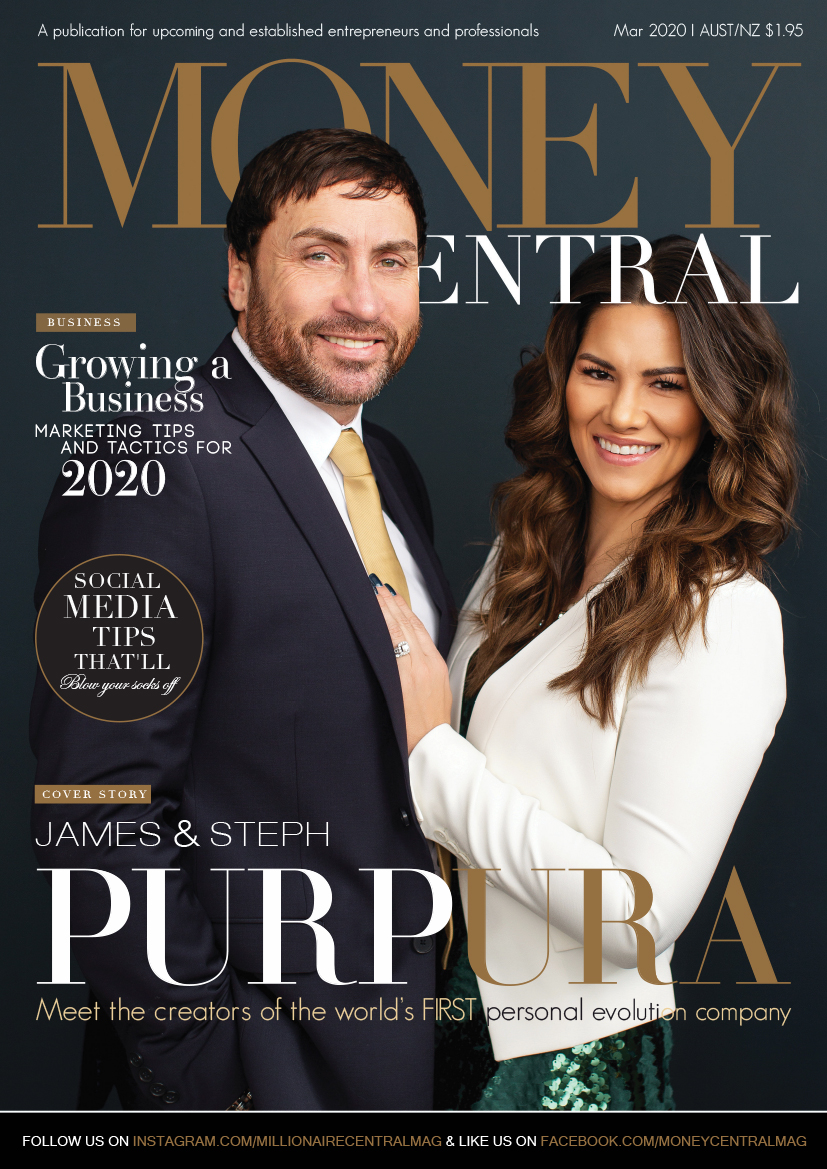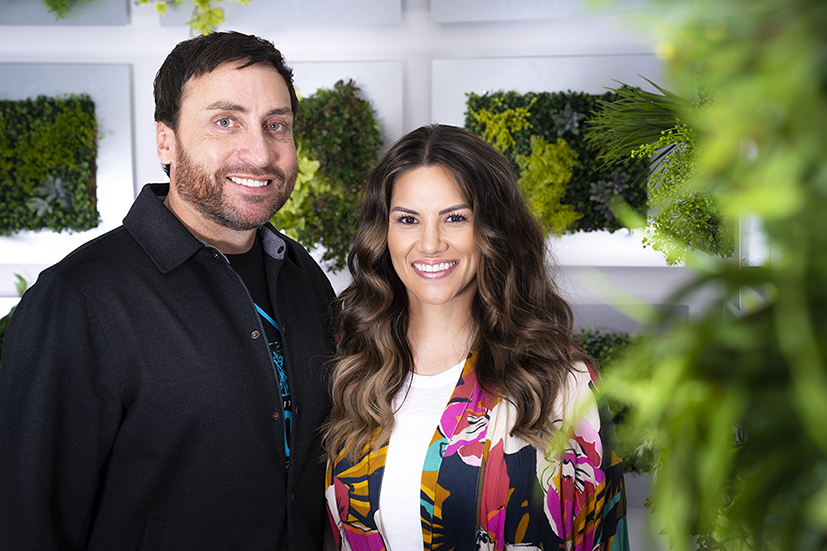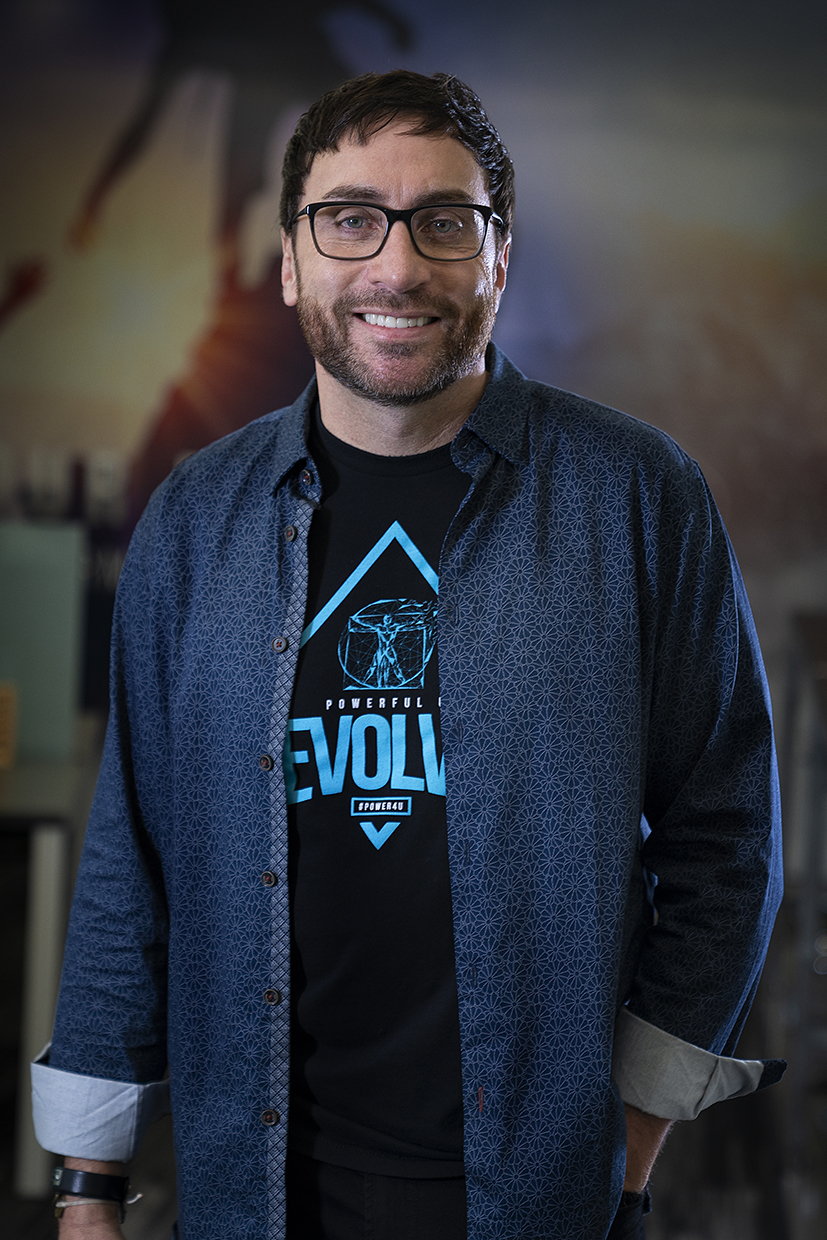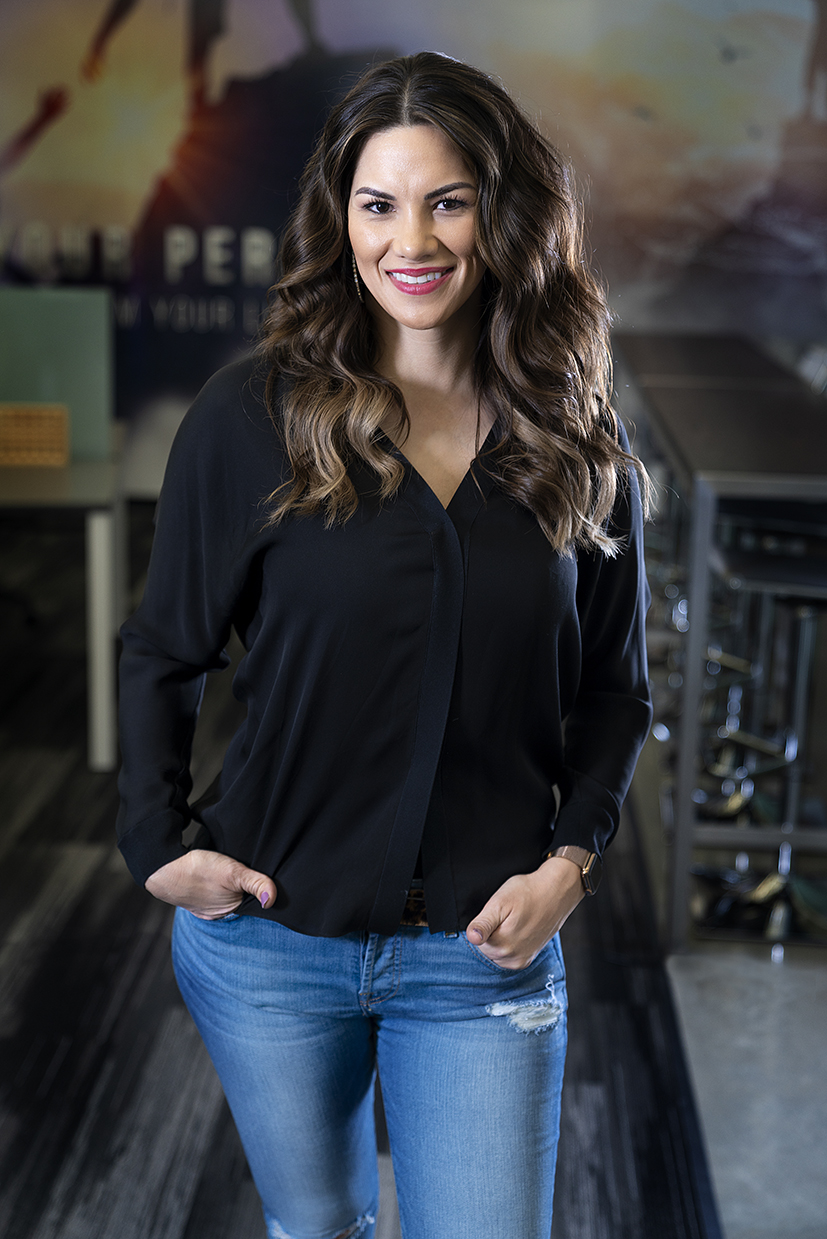
James and Steph Purpura’s journey of transformation is nothing short of extraordinary. Before they met 15 years ago, both of their lives had hit rock bottom. Depressed, bulimic, hopeless, running away from an abusive relationship, and suffering through decades of silence after being sexually abused as a child, Steph at one point tried to commit suicide in a hotel room. James, on the other hand, was filled with self-hate and rage at the world because he felt abandoned by everyone and everything. He eventually turned to drugs and then petty theft to fuel his addictions. Later on, he found himself in prison, locked up in solitary confinement.
At the lowest point in their lives, they met and were united by a shared vision of creating and becoming more. They started the only place they could by working on themselves and helping each other grow. They believed in each other but more importantly, they challenged each other every step of the way, and never settled.
James and Steph Purpura revealed that those tragic events actually became the catalyst for dramatic life changes that brought them together, and their discovery of the keys to unlocking their perceptions, challenging their beliefs, and changing their behaviors. But it took years of trial and error using their relationship to test new ideas, theories, and practices with each other. As they created a new life together, James and Steph formulated an evolutionary plan for living that resulted in tremendous personal and professional success. Now their hugely successful Powerful U events and programs are changing the lives of millions.
Their mission is to provide a roadmap for creating meaning in people’s lives, showing them how to master their perceptions and their emotions, the two factors that separate life of desperation and unhappiness, from one of joy, love, and accomplishment. According to James and Steph, “Everything you are, everything you see, everything you experience, is determined by perception. And it is your emotions that give your life the only meaning it has.”
Money Central magazine recently caught up with James and Steph Purpura to talk about their journey to entrepreneurship and here’s what went down:
Please provide background about how the two of you met and how the world’s first personal evolution company, Powerful U came to fruition.
How we met is a topic of great debate around our house because we both have different stories about how it went down. But most people seem to believe Steph’s version of the story! We both worked in the same office building, but not for the same company. I saw Steph walking in the parking lot and held the door for her, (Steph swears we were 150 feet apart) but to me, it was more like 10 feet. Anyway, she walked through the door and I walked in after her, she became flushed once she realized I was holding the door for her. Steph was walking to the elevator when she turned around and introduced herself, and then we didn’t see each other until the next week. Later on, we had an awkward encounter in the parking lot where I asked Steph really odd questions like “do you eat” and somehow I convinced her to go on a date with me. The next morning I showed up in her office asking her to go to lunch with me and we have been together ever since. When we met, we were both coming out of the darkest periods of our lives and we had nothing. I was a year out of jail and Steph was 4 years out of a brutal suicide attempt. We started with nothing and were both committed to re-building our lives into what we always dreamed they would be. Years later, we sold our worldwide tech company, and started Powerful U, as our way to give back through sharing the knowledge we learned on our climb out from rock bottom.

Many are calling “Powerful-U” a movement. What are its basic fundamentals and why do you think it’s being referred to as this?
We are encouraging people all over the world to embrace and share their stories because your story only has power over you when you keep it inside. When someone has the courage to share their story it unconsciously permits someone else to do the same. If there is a movement, it’s because we are giving people permission to stop hiding from their past and embrace the power of vulnerability.
What do you find most rewarding through Powerful-U?
Giving people hope. When people tell us that our event or content pulled them out of the darkness and saved their lives. It’s truly incredible knowing that the work we are doing is having such a powerful impact on people.
What types of people tend to gravitate toward the Powerful-U platform and who would you consider your main audience?
Seekers, those who are hungry for the knowledge to shape and change their lives. People who are not afraid to question every aspect of who they are.
You have been extremely successful in various technology ventures, including that of PlanSwift. What has been the biggest challenge shifting from that world to Powerful-U?
The hardest part of transitioning was leaving the world of logic and numbers to the world of emotions and personalities. Embracing social media was very difficult for both of us.

What advice do you have for other business owners struggling to make a footprint in today’s competitive world?
Most business owners quit just before things take off, so if you feel what you’re doing is right and provides value to others keep pushing forward!
What life moments have made the two of you the successful people you are today?
Always pushing each other forward through our biggest fears, and challenging the false and limiting beliefs we had about ourselves.
What would you consider your personal missions in life?
Steph: I just started a subset of Powerful U, called Powerful Women. We had our first event in February 2020. I want to help women find their voices and step into their personal power.
James: To help and change the world into the place that I want my kids and grandkids to live in.
What career goals do you have, after accomplishing so much to date?
We want to make help available to people all over the world so they will have the knowledge they need to transform their lives.

Tell us about your award-winning documentary titled “Perception: Seeing is Not Believing” and your experience as first-time filmmakers.
We wanted to demonstrate that everybody’s life makes perfect sense when put into the right context. We want to give people awareness into what elements create their lives and what they need to know to change. Making a film was both easier and harder than we thought it would be. It was easy to film a lot of compelling content, and it was hard deciding what to use in the final cut.
Do you plan to continue in the world of film and pursue a bigger picture in this space?
YES! We have some future projects in mind that we are really excited about producing.
Who do you consider to be the most interesting and impressive people?
People who have the courage to stand up and question/challenge everything about themselves and the world around them. We are constantly reinventing ourselves and we fully understand how challenging that can be and we respect anyone who attempts to do the same.
You now have a Powerful Universe APP available for smartphones, iPads, and tablets. What drove you to create this, outside of your thirst and natural ability to thrive in technology?
The model to distribute independent movie is broken because filmmakers don’t get access to any of the customer data on the big platforms. We initially launched the platform as a means to distribute our film and it morphed over time as a way to deliver subscription content.
Which social media platform do you feel is the most powerful and why?
Facebook is still the king because they have the most flexibility in the type of content you can post
Where do you see Powerful U in 5 years? 10 years?
As an ecosystem for people who need a platform to deliver compelling content to seekers from every corner of the globe.
How do you separate work from family, considering you are married with children and work together. What is your secret?
We wake up an hour before our kids every morning and meditate together, to make sure we remain connected and on the same page. We make an effort to eat dinner together most nights as a family.
The ‘LIGHTNING FAST’ Round — feel free to answer individually
1. Last good movie you’ve seen: JOKER- Even though it was extreme, they did a really good job of portraying the impact of mental illness.
2. What do you consider beautiful and why? Our children- Seeing the beauty of their individual personalities.
3. What haven’t you done yet that you wish you could? Tour Europe.
4. Complete this sentence: “If I had no fear, I’d…” Enjoy our lives more fully.
5. What is the one “flaw” you wouldn’t change about yourself? We wouldn’t change our past, because it’s taken everything we’ve been through to become the people we are today.